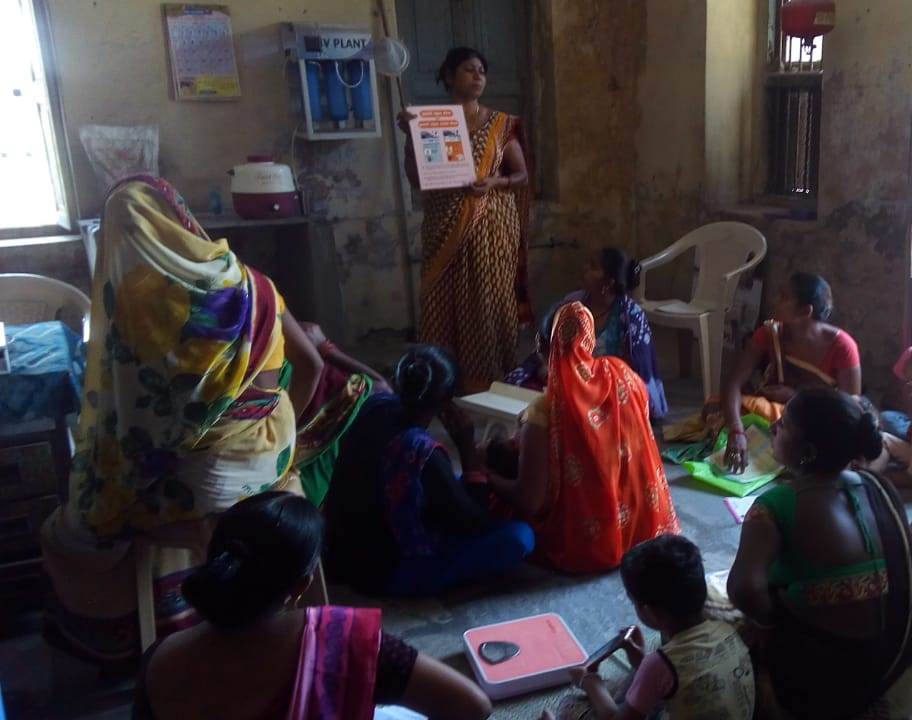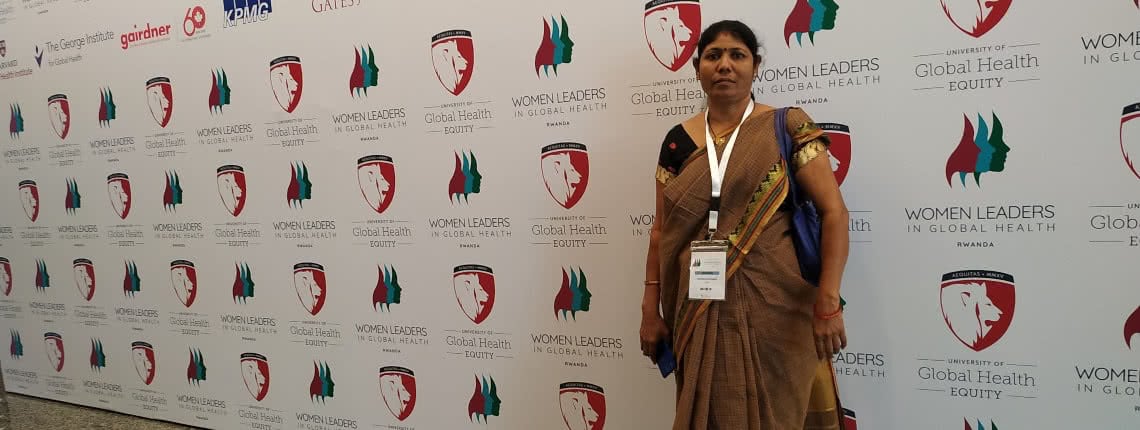Pushpa Rathod’s work days are unpredictable. On any given day, she may be talking to adolescents about their health, counseling women working in the informal economy on how to access daycare or advising community members on insurance, pensions or housing initiatives.
Pushpa works as a community health worker for the Self-Employed Women’s Association (SEWA) of India and has honed her skills on the job over the last 18 years. SEWA believes in an integrated approach to health for the community. As a go-to for a variety of needs, Pushpa says her work has given her confidence in herself and her abilities to be a leader in the community. Growing her own skills has translated into the quality of services Pushpa can provide to some of the most vulnerable populations in her home city of Ahmedabad, India.
As the world celebrates International Universal Health Coverage (UHC) Day on December 12, frontline workers are delivering quality, affordable health services to informal workers across India.
Acknowledging the role that Pushpa and other community health workers play in ensuring health services to communities in need is particularly important this week. As the world celebrates International Universal Health Coverage (UHC) Day on December 12, frontline workers are delivering quality, affordable health services to informal workers across India. Community health workers — women trained to provide essential primary care to their neighbours — are game changers in the goal of reaching universal coverage, especially for informal workers who struggle for access to so many basic social protections.

As part of the UHC movement’s call for “keeping the promise of health for all”, community health workers like Pushpa are calling for greater recognition as key drivers toward last-mile coverage. Pushpa recently spoke at the 2019 Women’s Leadership in Global Health (WLGH) Conference, which for the first time featured a panel on community health workers. She shared how important her role has been for the community and for her own growth.
For nearly two decades, Pushpa has faced an uphill battle as a community health worker. In a country like India, she says, where patriarchy still exists and women do not have decision-making power, it is a significant accomplishment to become a community health worker. She also wears other hats within SEWA, including as president of SEWA’s Health Cooperative, a board member of SEWA’s insurance cooperative, a member of SEWA union and a shareholder of SEWA’s savings and credit cooperative.
Pushpa spends a lot of time in close coordination with informal working women to help them understand issues that are affecting them and the entire community.
Pushpa spends a lot of time in close coordination with informal working women to help them understand issues that are affecting them and the entire community. Her goal is to problem solve and bring possible solutions. Her knowledge of the community and their needs and issues helps to ensure they receive appropriate health services.
With this deep knowledge of the community built over many years, she has established herself as a leader and trusted member of the society. Her role is also key as a bridge between those in need of service and the government systems that potentially have programmes and schemes that could help them. Pushpa ensures that community members know their rights and the entitlements that should be reaching them.

Although Pushpa is confident in her role today, it has taken a lot of training and support to get to this stage. On the panel, she emphasized the importance of adequate training and ensuring community health workers are up-to-date with their knowledge on emerging health issues and trends. She says that although she had a low level of education, she has participated in many capacity-building workshops and trainings by SEWA that have better equipped her to overcome challenges.
One of the challenges Pushpa had to overcome was establishing herself as a voice that should be listened to and heard among government officials. To be more effective, she has learned the structures of government to be able to intervene appropriately. She credits much of what she knows today about rapport building and networking to other SEWA community leaders who she observed closely as they conducted their own similar work.
Their voices and participation are essential in ensuring governments achieve universal health coverage in the most efficient and effective ways for the people who need it most.
As a way forward, Pushpa believes it is essential to have community health workers’ views recognized and shared at national and international forums. Ultimately, she hopes their views and experiences will be taken into consideration in policymaking and that they are included as recognized and respected health workers who can contribute to the design, management and planning of any related government programmes. Their voices and participation are essential in ensuring governments achieve universal health coverage in the most efficient and effective ways for the people who need it most.
Learn more about innovative solutions to delivering Universal Health Care to informal workers.
Feature photo: Pushpa recently spoke at the 2019 Women’s Leadership in Global Health (WLGH) Conference, which for the first time featured a panel on community health workers. Credit: SEWA
This story was in collaboration with Ketki Gujjar, SEWA, and Laura Alfers, WIEGO's Social Protection Programme Director
